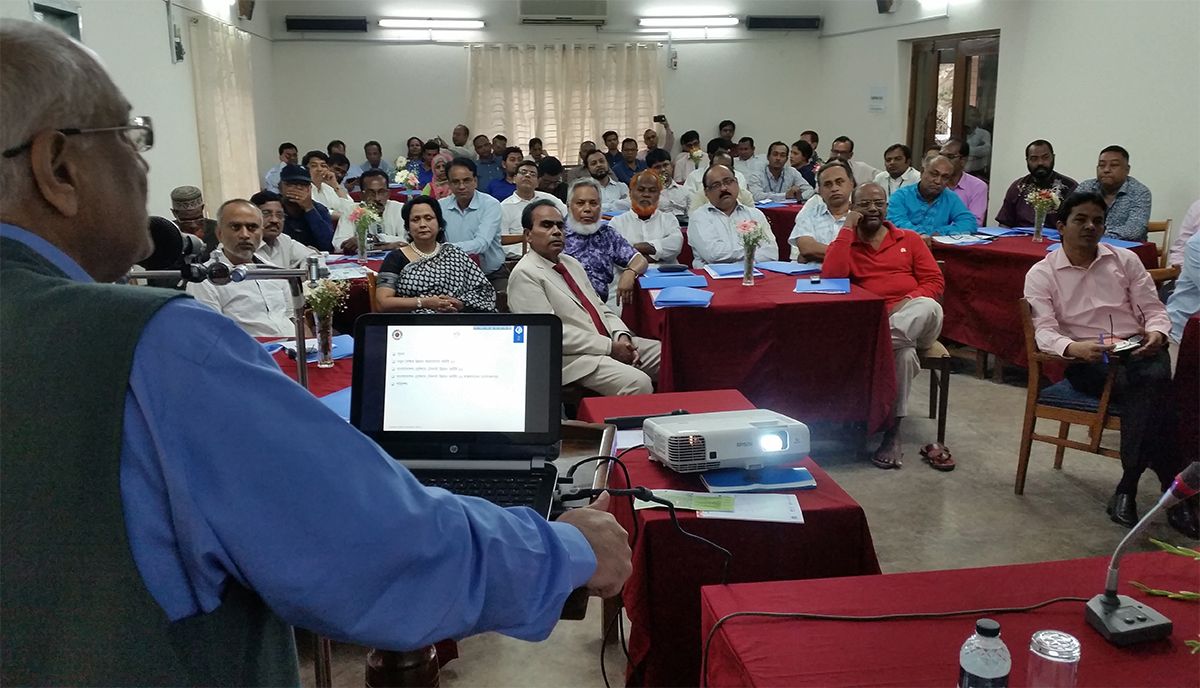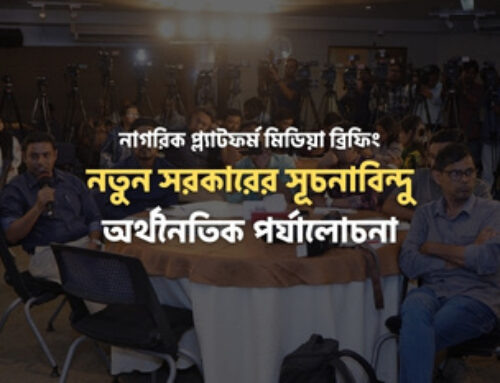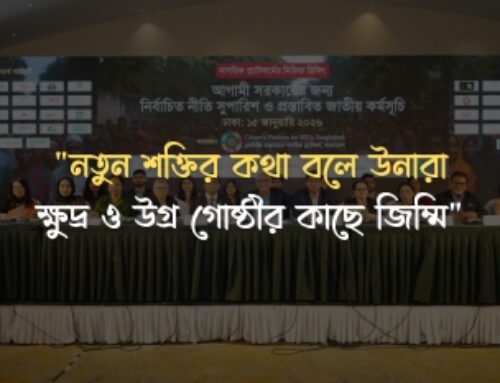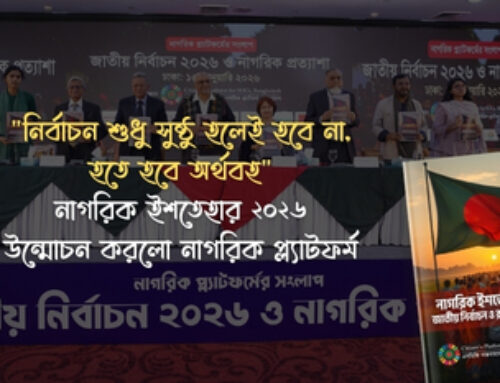In line with the UN Agenda for the Sustainable Development Goals 2030, a particular focus will have to be kept on Goal 16: Promote peaceful and inclusive societies for sustainable development, provide access to justice for all and build effective, accountable and inclusive institutions at all levels. In the past few years, Bangladesh government has taken measures to reform laws and strengthen institutions. However, all these are yet to affect lives positively, shared by Dr Debapriya Bhattacharya at a discussion seminar at Madaripur.
Citizen’s Platform for SDGs, Bangladesh organised a dialogue titled “The New Global Development Agenda: Peace and Security, Human Rights, and Governance,” in partnership with Madaripur Legal Aid Association (MLAA), Transparency International Bangaldesh (TIB), and TIB’s conscious citizen’s group at Madaripur. The event took place on Saturday, 4 March 2017 at 10:00 am at MLAA’s training centre in Madaripur.
The event was chaired by Chowdhury Nurual Alam Babu, Vice-President of MLAA, and former Mayor of Madaripur. Other attendees of the event were Khalid Hossain Yaad, the current Mayor of the Madaripur, representatives of local organisations, other government officials, and leaders of professional bodies and societies. Dr Debapriya Bhattacharya, Convenor of the Platform and eminent economist, made the keynote presentation. Dr Iftekharuzzaman, Executive Director of TIB and Core Group Member and Barrister Sara Hossain, Honorary Executive Director of Bangladesh Legal Aid Association Trust (BLAST), a Partner Organisation of the Platform, addressed the meeting.
Dr Debapriya Bhattacharya, in his speech, highlighted on the distinct features of SDGs coined with good governance for overcoming implementation challenges for the country. He also said, there is a critical dearth of data for measuring progress in the areas of peace, security and human rights for inclusive economic growth. The government and civil society organisations (CSOs) will have to invest into these areas creatively.
 Dr Iftekharuzzaman mentioned that, setting aside international commitments, the government will also have to take steps for establishing good governance and enacting laws for anticorruption assistance at national level. To raise national accountability the government will have to set institutional guided laws and order, rules and regulations; in which accountability and rights to information are prioritised which are critical for proper implementation of these policies. Political parties, one of the most important institutions in a democratic system, need to be transparent and accountable. Other democratic institutions will not be able to ensure their transparency and accountability up until without initially addressing these requirements from the government bodies.
Dr Iftekharuzzaman mentioned that, setting aside international commitments, the government will also have to take steps for establishing good governance and enacting laws for anticorruption assistance at national level. To raise national accountability the government will have to set institutional guided laws and order, rules and regulations; in which accountability and rights to information are prioritised which are critical for proper implementation of these policies. Political parties, one of the most important institutions in a democratic system, need to be transparent and accountable. Other democratic institutions will not be able to ensure their transparency and accountability up until without initially addressing these requirements from the government bodies.
Progressing towards the agenda of “leaving no one behind” is not possible without enabling basic human rights, mainly democratic rights to exchange opinions.
Barrister Sara Hossain, Advocate of Supreme Court of Bangladesh and Honorary Executive Director of Bangladesh Legal Aid Association Trust (BLAST), said that, to achieve Goal 16 we need to institutionalise legal organisations for ensuring security and enhancing child protection by raising accountability of these legal systems. In this case, early childhood marriage 2017 could be an important step. But she was skeptical on whether these laws enactment will be put together under other important agendas if not the women and child rights organisations join in collective hands.
Advocate Fazlul Haque, the Editor of MLAA emphasised, we will not be able to benefit from democracy if we are not able to reduce corruption. He raised a pledge on whichever platform we may be in, we need to be more conscious in raising awareness and handling corruption.





